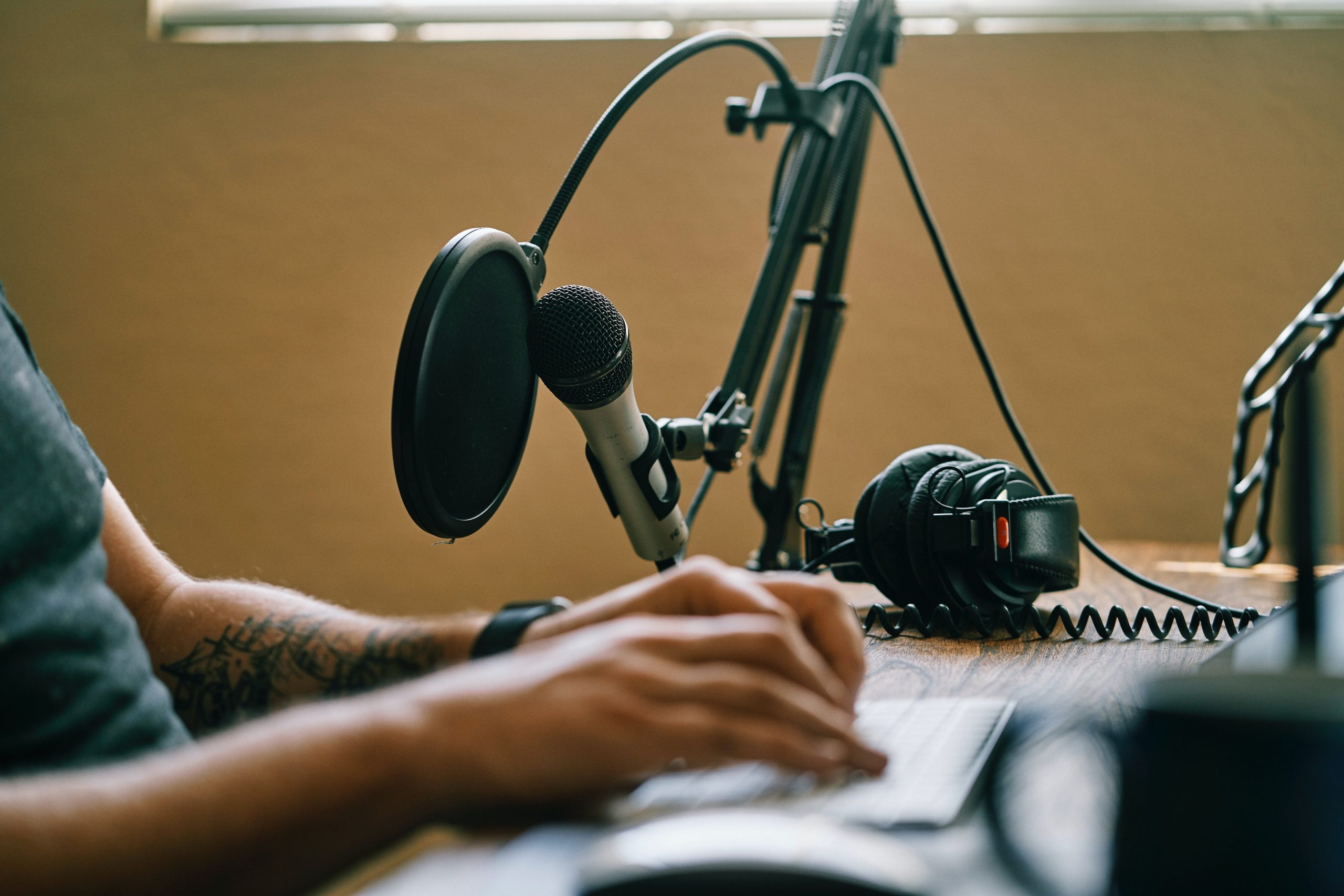Tech giants Apple and Spotify are currently going head to head in the battle to reign the podcasting world.
When Apple Podcasts launched in 2005, there were 3,000 shows available on iTunes. Now, over fifteen years later, there are almost one million shows to stream. During this time, podcasts evolved from a niche service into a mainstream form of entertainment.
For the most part, podcasts were free to listen to, and listeners were able to pick from a growing number of apps to stream and download their favourite shows.
Even as more of the web got locked up behind paywalls, subscriptions, and exclusive deals; podcasts remained free and open.
Most shows were hosted by Apple Podcasts for free, and podcasting apps would tap into Apple’s network for free access to all of the hosted shows. It was delightfully refreshing that a company so strict on controlling and monetising closed ecosystems would keep such a network free and open for anyone to use. However, many wondered how long this would last.
Spotify joined the chat

Podcasts existed on Spotify prior to 2019, but support for streaming them was half-baked in the app. Spotify’s Chief R&D Officer Gustav Söderström even admitted this himself.
“The user experience was really poor. There was no 15-second skip. In spite of that, we saw a lot of users listening to podcasts. It was kind of unexpected and we didn’t really understand why. It turned out people really wanted to have podcasts in Spotify with their music. If you look at radio, it’s not that surprising,” Söderström said.
Ending the open platform
After its splashy entry into podcasting, Spotify introduced exclusive shows that can only be streamed through its own apps. In 2020, the company signed an exclusive licensing deal with Joe Rogan for $100 million. This took one of the most popular shows away from the open podcasting network and locked it inside one app.

Read also: Colourful iMacs, AirTags: All you need to know about Apple’s unveiling event
However, the exclusive deal gave us a glimpse into the future of podcasting, where users would need to use different apps to stream different shows, similar to what currently happens for TV shows and movies. It’s a disappointing yet inevitable path for an industry that’s been loved for its openness.
The future of podcasting is here
Large investments from multi-billion dollar companies into a field isn’t necessarily a bad thing, though. The money coming in will certainly attract more talent into the industry. It also means that we can expect more money poured into the creation of high-quality podcasting content. This is likely to attract more users which will bring in more money, and soon we can see the industry mature as a whole.

There is, however, one key difference between Apple and Spotify’s approach: fees.
The tale of a 30% commission
Spotify will give creators 100% of the money paid by users, minus a small transaction fee that goes out to the payment provider. In 2023, Spotify plans to start charging a 5% commission on all podcast subscriptions.
This is significantly lower than Apple’s 15 to 30 percent commission.
Spotify’s change may make creators more willing to host their shows on Spotify, but creators will likely host their shows on both Spotify and Apple Podcasts for maximum exposure. Rather than stealing Apple’s thunder, it seems that Spotify is using its zero commission strategy to convince creators to go through the effort of hosting their shows both on Apple and Spotify. And it will probably work.

Read also: Covid crimes: How vaccines are being sold on the darknet
The battle of the 30 percent Apple tax is something Spotify has been fighting for the past couple of years, with the streaming giant taking Apple to court in several countries, as well as joining a coalition of large tech companies standing up to Apple’s high fees. Apple has utilised the fee to help it in its battle against Spotify over music streaming, and now the company is leveraging the tax to its advantage for podcasts too.
Who’s going to win?

However, Spotify is putting up a really strong fight too. It added podcasts directly alongside music to bring more eyeballs to the service. It also acquired some of the largest podcasting companies and signed exclusive deals for popular shows such as The Joe Rogan Podcast and exclusive deals with Barack and Michelle Obama.
The competition is tough, and we’re likely to see both companies make large investments here. Unfortunately, we’re also likely to see exclusive deals forcing us to use two different apps to serve the purpose of one. Instead of opening up a podcast app and listening to whatever show we like, we’ll have to make the intentional decision of opening the app that currently has exclusive rights to whatever show we want to listen to.
While we can’t tell for sure who will win this battle, we know it definitely won’t be the consumer.
Follow Doha News on Twitter, Instagram, Facebook and Youtube







